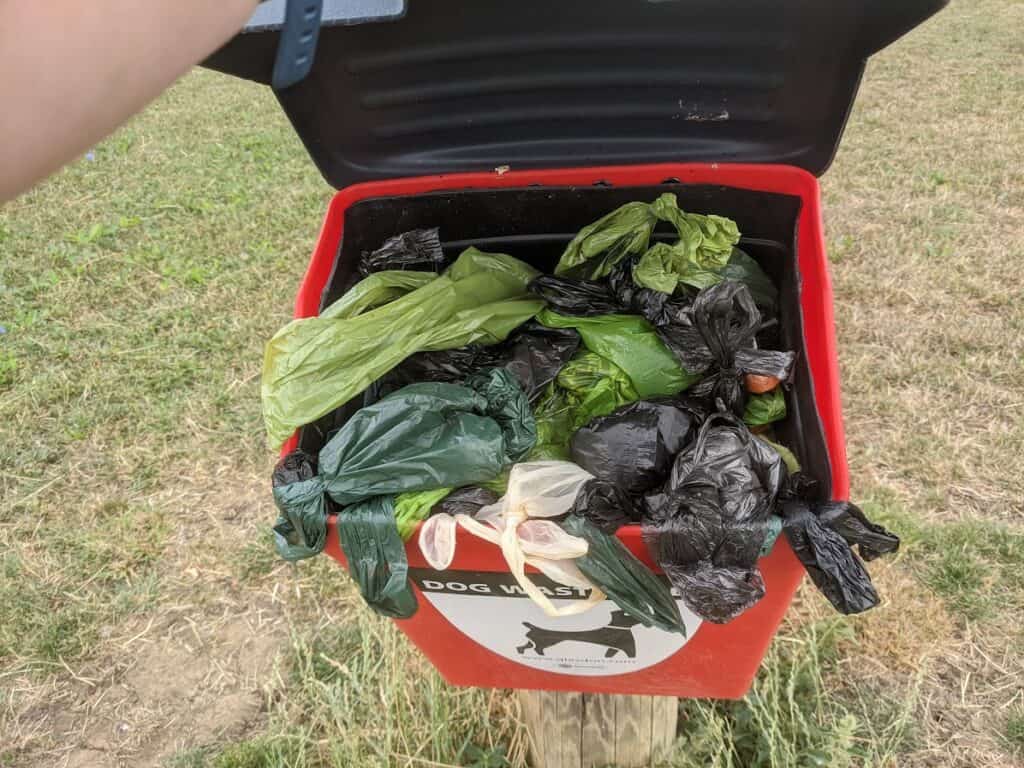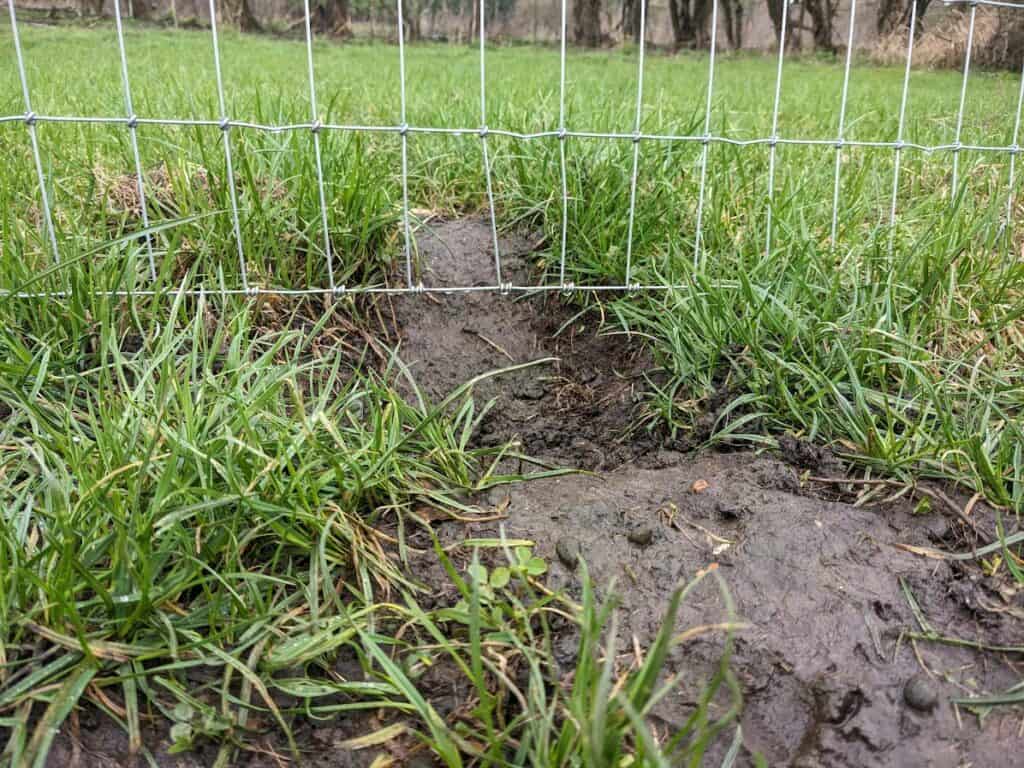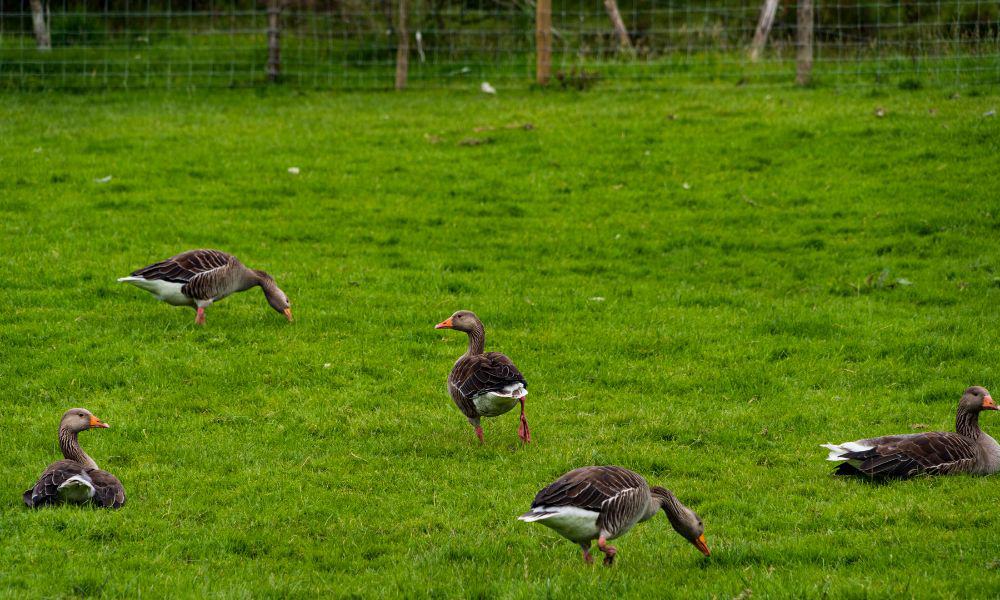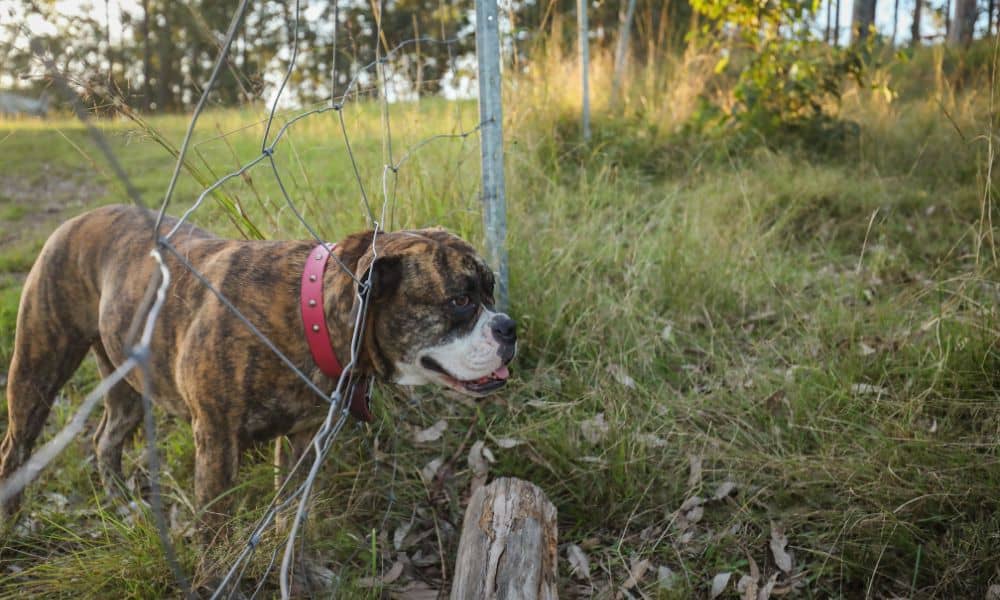This is one where I’m not going to beat about the bush.
You must check your fields every day before you open – for both your customers and to protect your business. If you don’t do it, please read on because I hope by the end of this, I’ve convinced you that it’s absolutely critical.
When I visit a dog field for the first time, I often book the first session available so I can get an impression of what the new day brings and see if the field has been checked.
I can tell if it has, and so can your other customers.
Confession: I didn’t use to check our fences first thing in the morning. At our first field, I checked sometime during the day (when it was convenient) and last thing at night.
The benefit of 5 years of immersing myself in all things dog fields is that I’ve educated myself and I shudder at some of the decisions we made back then – even with the benefit of in-depth research and over 50 visits to other fields before we opened. If there was a mistake to make, trust me, we made it. Thankfully we never suffered any consequences – we got some brilliant stories but no escapees. I’d never have forgiven myself.
So here I am, gently wagging my finger at you if you operate a dog field and you’re not pacing the perimeter every morning before your first customer comes in.
Overkill? No. And here’s why.
10 Reasons You Should Check Your Fences EVERY Morning Before You Open
1. Delivering on your promise
When someone books your field, you make a contract with them. Irrespective of what you have in your terms and conditions or caveats you make, it is a fair assumption for a customer to make that they are entering into a ‘safe’ environment.
The vast majority of things that damage fences and gates and dig holes will do so between the time your last customer leaves, and the next one arrives the following day.
If you have not checked the security of your facility before that first visitor, you cannot, hand on heart say that it is safe for them to use?
2. Keeping Things Neat and Tidy
Whether you like it or not, part of running a dog field is picking up dog poo, fixing things customers have broken, and tidying the ‘playroom’. Whilst you’re checking your fences, spending 5 minutes making sure the place is spick and span is time well spent. The annoying thing is that people don’t notice when you do it, only when you don’t!
3. Poo Bins
My biggest singular gripe about dog fields is the number of dog field owners who do not manage their waste properly.
Every poo bin in your facility should be emptied daily.
Top Tip: Don’t store your main industrial bin (the big yellow one for those of you using Pet Waste Solutions) in a public area – those bins hold up to 70kg of dog waste at any one time so imagine you’re a customer opening one of those on a sweaty August afternoon…. No thanks! People also take the opportunity to empty their car footwells which is infuriating for you as it is then ‘contaminated’ and some waste services can’t collect it.

If you need to keep the bin nearby, I recommend a wheely bin shed – they’re relatively inexpensive, and you can put a lock on for security. We suggest keeping these bins well away from the field area so that contractors don’t disturb your customers when they come by.
You can see one of the bin sheds we recommend here and you should be able to find one that suits you.

4. Eliminate Issues Before They Happen
If you’re new to dog field ownership and haven’t been through a winter, you won’t yet know how reliable your lock is!
If you are the first person in each morning, any defrosting or lubricating of the lock that’s required can be done before the inevitable phone call from an irate customer who can’t get in (try this stuff, it’s magic!)
The same applies to dropped gates; flooded car parks; frozen taps; unexpected road closures; great big holes… this list goes on.
Getting up and at it means that you are forewarned of any issues your customers might face and can either fix them or let them know of any measure they need to take.
5. Covering Your Back
This one is simple – you are running a commercial operation. You have a responsibility and duty of care to your customers and should anything bad occur, every procedure you have in place; every item in your field; and every operational thing you do or don’t do will be scrutinised – this could be by insurers, police and probably government regulators in the future.
Top Tip: Never forget you are running a business.
6. Gate Left Open
I was speaking to a distraught dog field operator a few months ago. They had a muntjac deer killed in their field by a dog. The dog owner was rightfully upset and furious – the reason they use secure fields is because their dog has high prey drive and all the hard training they had been doing was undone in an instant.
What happened?
It’s really simple – reviewing the CCTV, the last user had left the outside gate open overnight. The field owner doesn’t check in the morning so not only was the gate unlocked and open but there was a 4-legged guest in the field.
These were compounded issues that the customer should never have known about because they should have been dealt with before they arrived. The gates should not have been open but even if they were, the deer should have been evicted before opening.
A painful lesson and a regular customer lost.
7. Vandalism
Thankfully this is really uncommon but it does happen and when it does it’s devastating.
A cut in a high tensile fence is difficult to fix properly and the whole thing can lead to the operator feeling very uncertain and worried.
That aside, it shouldn’t be the first customer of the day’s job to discover you have been a victim of something dreadful like this.
Make sure you really look at the fence, all the way around.
8. Rabbit / Badger Damage
Discovering that these vandals have been in overnight is the most common problem that needs dealing with at the crack of dawn.
You’ll need a temporary fix (rocks or something to fill the gap) but don’t forget about fixing the problem properly or your field will end up looking like Steptoe’s yard.

9. Fallen Trees
This has happened to us twice – and terrifyingly, once with a customer in the field.
Regardless of good tree maintenance, these things happen.
We had a surprisingly calm call from a customer at around 2.30 one afternoon. “Hi Hannah, I’m so sorry but a tree has fallen on the fence and there’s a whole section broken – I’ve sent you some pictures”.
OMG. Where is her dog? Was she or the dog hurt? Thankfully no and this lady’s dog was no Ronnie Biggs so all was well.
Due largely to a career spent in event management, I’m prone to a bit of risk analysis and when I’d been drawing up our risk assessment and method statement, I put a basic procedure in place to deal with things like this so I just went onto autopilot. I called all the customers for the rest of the day, drafted a quick ‘incident report’ (belt and braces), and sent my partner to assess the damage and get to work. We had a ‘go bag’ of fence mending tools and gubbins so we had the thing handled before the end of the day.
The next time, it happened overnight and didn’t damage the fence, but thankfully on this occasion, I was the first in.
Check your insurance policies – if you have a comprehensive farm policy, you might have some cover for fence damage but straightforward Dog Field policies don’t usually cover fence damage – just worth thinking about.
10. Act of God
I don’t really know how else to describe them but here are a few things that have happened to us or others:
– Arrive to discover a flock of migrating birds in the field
– Discover a hare in the field
– An unexpected flood in the car park making access impossible without a 4×4
– A plague of locusts swarming in the field (a tall story but you get the point)

The Excuses People Make For Not Checking Their Fields First Thing
I hear a lot of chatter around this topic and I’m pretty confused as to why it’s debated so much but there are some of the common excuses field operators make for not checking their fields before opening. I’ve also added some ‘helpful’ suggestions for anyone who is struggling to get this job scheduled 😊
I don’t live on site – it’s too far
You need to prioritise your customers so here are a few ideas:
– Get up earlier
– Employ someone who can get up and do the job for you
Easy!
Can’t do it before the first customer – we open too early
– Open later
– Get up earlier
My Customer Checks
No they don’t. You think they do but they don’t. They might check the fence hasn’t fallen down but what about everything else?
I have had so many field owners exasperated by the people who do field checks in return for a free session – it just doesn’t usually work very well.
Does your customer understand your legal and moral responsibilities? Do they know everything they need to be looking for and how to manage it? Ragwort, holes for people to trip in, what to do if someone has abandoned a car in front of the entrance, what to do if they find a cougar in the field?
If you’re getting someone else to check your fields, give them a comprehensive checklist, add a motorway services toilet check sheet and get them up to upload pictures to a cloud account – this just covers you from an insurance perspective.
We’ve put together Free Downloads of these checklists that you can print out and laminate for yourself or your field inspection team. If you want us to send them to you, please do drop us an email here and we’ll ping them to you.
My Insurance Policy Says I Only Have To Check The Fences Once A Week
I don’t care what your insurance policy says and neither do any of your other customers.
My Fences Are Dug In
This only really protects the field from intruders digging in. It’s not the solution to avoiding daily checks.
“You’re so over the top Hannah!”
Cry dog field owners across the land!
I hear you. I hear it a lot actually! And I make no apology.
I did my best with our first field, I think most people do. People loved it – we loved it. Then I got into the weeds and realised that running a dog field isn’t as straightforward as it looks – it’s something to be taken extremely seriously and done to the very best of your abilities.
You are opening your doors to people who are bringing their precious dogs to play. If you fail to take that responsibility seriously, you cut corners or neglect the details, then customers will notice and vote with their feet.
On behalf of all dog field users. Please check your fields each day before we arrive. It makes us feel safe; it makes us feel like you care about us as customers; and it shows in how good your field is.
2 thoughts on “How Often Should You Check Your Secure Dog Field?”
Comments are closed.


Absolutely agree with all that is said, but I would also add that you must make your checks early enough to remedy a solution be that repair work or customer liaison. We are the professionals the responsibility lies with us not the customer. As dog field providers it’s not just about the facilities on offer but the service provided also.
Absolutely Spot on ! We opened our dog field in July 2022 and visit every single morning before open without fail to check the fenceline and equipment, collect waste, top up treats and bags and prepare the field for the day and we bring tools ready to fix any problem. I offer the service of a stress free secure field, not just a field !